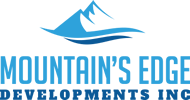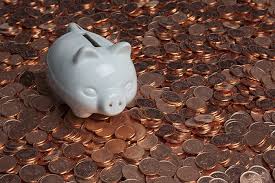How do you evaluate any investment opportunity? What is the cost to get in? What is the anticipated profit? How long will I need to leave my money there in order to profit? What are the risks? What kind of security does my initial investment have?
Yet the more I listen to people, the more I hear investors skipping over all the other details and going directly to the “return on investment” or ROI. The other thing I am learning, is that many people have their “number.” This number is a minimum return/profit that they are willing to make on any investment. What’s your number? How much is enough for you? Or does it depend?
Do you know the story of the doubling penny? The story begins with a question—usually to a Grade 5 math student: What would you rather have: a penny doubled every day for 30 days, or a million dollars in one month? Ah, those poor kids that think this one is obvious! The kids that actually do the math, find out that they will receive over $5 million by taking the doubling penny deal. They are patient, and they do some work, before they receive their rewards—it actually takes until about Day 20 before the math starts to get interesting! You can see the math at the end of this article.
As smart adult investors, it is important for us to pause as well. Would you rather do 10 deals for $10K profit each, or wait until that home-run deal comes along for $100,000. Are you part of the instant gratification culture that wants a profit in 5 years or less, or do you see the value in long-term mortgage paydown, cashflow, and possibly property appreciation?
I meet aspiring real estate investors every day, and I am fascinated by each person’s concept of minimums (their “how much is enough”). I chat with people who will not enter into any deal without an anticipated return of 50% or more, in 5 years or less. Why? Because that is what they received back in 2007, or 2014, or some other magical time when real estate was booming. The really fascinating conversations though, are with experienced and strategic investors. They are buying low today, sometimes really low! They are patient, receiving more than a penny on day 1, but not as much as they would ideally like to have. Those first years in a mortgage we all pay a lot of interest, and only a little principle. But these investors know their time frame is more than a month, and they truly understand the real estate cycle. As more jobs continue to flow into Alberta, Canadians will eventually figure out how “cheap” real estate is in Calgary—and then it won’t be bargain prices anymore. How much is enough for you?
Day 1: $.01
Day 2: $.02
Day 3: $.04
Day 4: $.08
Day 5: $.16
Day 6: $.32
Day 7: $.64
Day 8: $1.28
Day 9: $2.56
Day 10: $5.12
Day 11: $10.24
Day 12: $20.48
Day 13: $40.96
Day 14: $81.92
Day 15: $163.84
Day 16: $327.68
Day 17: $655.36
Day 18: $1,310.72
Day 19: $2,621.44
Day 20: $5,242.88
Day 21: $10,485.76
Day 22: $20,971.52
Day 23: $41,943.04
Day 24: $83,886.08
Day 25: $167,772.16
Day 26: $335,544.32
Day 27: $671,088.64
Day 28: $1,342,177.28
Day 29: $2,684,354.56
Day 30: $5,368,709.12


